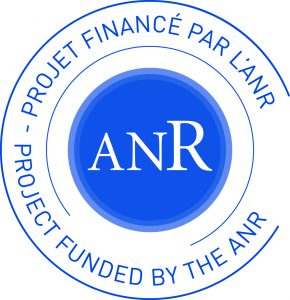In the context of the speech production disorders observed in ENT cancers, neurological, sensory or structural pathologies, the objective of the RUGBI project is to make improvements to the measurement of the intelligibility deficit. Indeed, speech production disorders can lead to a serious loss of intelligibility, making it difficult for patients to communicate with those around them and limiting their professional and / or social life. Classically, the clinical evaluation of intelligibility is based on a global perceptual evaluation deemed unsatisfactory by its subjectivity, lack of precision and durationthat lead to erroneous measures of patient’s intelligibility. In addition, speech production tasksdedicated to this type of evaluation (repetition of words, sentences, reading) are far from being adapted to a precise measure of intelligibility and allow only an overall evaluation of the speech functional impairment. RUGBI proposes to overcome these limitations by developing a new objective evaluation tool based on i) the identification of relevant linguistic units from an acoustic and prosodic point of view, and ii) the identification of sensitive linguistic tasks. The objective of the RUGBI project is thus to supplement the therapist’s tools with a precise, robust and rapid measurement allowing to develop an optimized therapeutic project with a view to a tangible improvement of intelligibility. For this, RUGBI relies on important corpora, and already available speech productions of healthy subjects (190) and patients (365) presenting pathologies of structural origin (VADS cancers) and neurological (Parkinson’s disease), in the execution of different linguistic tasks, and for a part of them, at different stages of the disease. These corpora are a considerable asset for the conduct of the two areas of study of the project, respectively based on i) the perception of the speech intelligibility and ii) the automatic speech processing modeling, and more particularly, on the Deep Learning and its data representation properties that will have to be exploited here. In this context, the central objective of the project brings together the expertise of its members from the medical field, the field of language sciences and speech and language engineering to meet the challenges of biology and health. The multidisciplinary expertise thus acquired by RUGBI is a guarantee of success.
WP1: Data management and data selection
WP Leaders: Virginie Woisard (UVD) and Alain Ghio (LPL)Two types of corpora are at our disposition for the RUGBI project: the C2SI (carcinologic) corpus and theAHN 420 Parkinson (neurological) corpus.
These two corpora will be completed by a second recording session for a limited set of speakers, already recorded, in order to have some data for longitudinal studies and by some recordings in link with concomitant research projects including other aetiologies of speech disorders. A perceptual categorization of the recordings (subjective clinical assessment of speech disorder severity and intelligibility) by clinical practitioners of UVD and LPL will be performed.
WP2: Identification of relevant units and tasks for the evaluation of intelligibility in disorders of speech production
WP Leaders: Corine Astésano (OcLo) and Muriel Lalain (LPL)
Two postdocs will work on the work package in order to study
- The role of dysprosody in the intelligibility reduction
- The intelligibility assessment through different tasks and different pathologies
WP3: Modelling and automatic measures
WP Leaders: Jérôme Farinas (IRIT) and Corinne Fredouille (LIA)
A first PhD student will study the modelling of the relevant acoustic/phonetic zones that account for speech intelligibility and will carry out its automatic implementation while a second PhD student will focus on the search for (larger) prosodic units and their automatic implementation.
